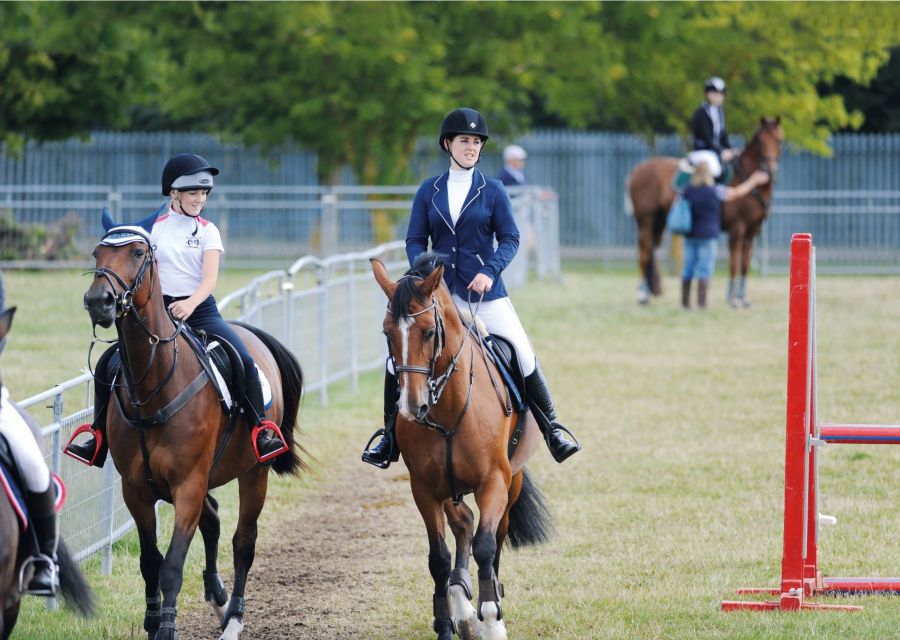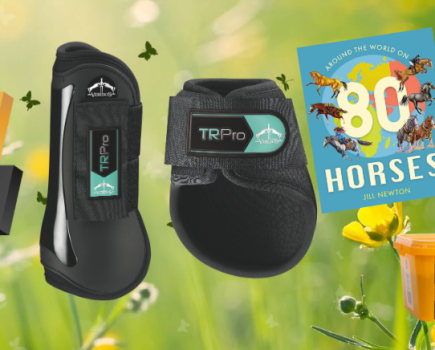Securing sponsorship or a brand deal is the dream for riders, professional and amateur alike. But with so much competition out there from other riders, what can you do to prove yourself an asset to a company? Social media expert and award-winning PR adviser Rhea Freeman shared her insight on the Your Horse Live stage.
There are three main categories when it comes to working with brands: influencers, brand ambassadors and sponsored riders.
1. Influencers
“An influencer is anyone with influence on social media,” says Rhea. “This could be someone with 10 followers – but from a brand perspective we’re looking at thousands of followers. And it’s not just thousands of followers, but thousands of interested and engaged followers. Influencers can work with brands on a long term basis or individual campaigns.”
2. Brand ambassadors
“The vast majority of people who are brand ambassadors are also influencers,” says Rhea. “Brand ambassadors usually have an alliance to a specific brand or number of brands. They would then have longer-term loyalty.”
3. Sponsored riders
“These are different because they are picked for their skills in the saddle. These are people who are professional riders. They sometimes have a financial benefit as well, so they get paid. But they are picked predominantly for how good they are in the saddle,” says Rhea. “With influencers, you don’t have to be an Olympian or have ambitions to fly around Badminton. You’re picked for many different factors, but it doesn’t matter if you’re not a world beater.”
The things that brands look for
1. Following
“It’s not just the size of the following. The number is important, but what that number is made up of is even more important,” says Rhea. “If you had 110,000 people that you had bought and they were bot or fake accounts, it would add no value whatsoever to what you’re doing, because they’re not interested in your content – they might not even be real people.
“It’s better to have 10 followers who really care about what you’re doing from your own personal brand point of view, than millions of people who don’t.”
2. Engagement
“As a brand, we look at the number of followers but we look at the content you’re putting out and the engagement on the post. Are people liking them?” explains Rhea. “Obviously you can hide likes on Instagram, but you can read the comments. When people comment are they staying ‘love this’ or asking you questions? And are you engaging back?”
3. Quality of content
“We do look at the quality of your content. This doesn’t mean you have to have a professional photographer or videographer, but it means the stuff you put out has to be good,” says Rhea. “The brand needs to be happy to put their name it that.”
But how can you elevate your posts, especially if you don’t have any fancy equipment?
“There’s lots of things you can do – go to YouTube and learn how to use your phone better, and get friends to help you,” advises Rhea. “Obviously you can use professional photographers, but you don’t have to to produce good quality content or video.”
4. The brands you already use
Before a company wants to work with you, they will want to know who’s products you already buy – theirs, or a competitors.
“If you are approaching someone who makes boots and you want them to give you their boots for free, and all you do is talk about a different brand, from a brand point of view you think ‘but all they do is wear this brand or talk about this other brand?’” explains Rhea. “What we as a brand like to see if when people are using our products, when they’re tagging us and engaging with us. It’s massively overlooked.”
5. Knowledge
If a company is going to partner with you, they want to ensure that you know your stuff and won’t lead your followers astray with the wrong information.
“Knowledge of what we’re talking about – horses – but also knowledge of the brand,” says Rhea. “If someone already gets it and likes it, it’s much easier for a brand to work with that person, because they don’t have to do half the work.”
6. Consistency
Setting up a schedule to post regularly will make you seem more reliable to brands.
“Consistency is really important. It doesn’t mean you have to post 60 times a day, but it’s much easier to pitch yourself as a reliable source if you do post regularly and consistently on your platforms,” advises Rhea. “From a brand’s point of view, you’re a safer bet. If you put a big flurry on for a week and then go quiet for six months, when I’m advising a brand, we’d see they do great things but do we know they’re going to deliver what they promised? It’s just unnerving.”
7. Authenticity
It’s important to be honest with your audience, and you should share your high points, but everyday isn’t perfect and you shouldn’t pretend it is by only posting positives.
“For me, being authentic is not saying ‘I’ve had the best day ever’ when ten seconds before you were weeping in the corner,” says Rhea. “Looking at a brand point of view, authenticity is being truthful with what you say and what you put on.”
Equally, it’s important to protect yourself. You don’t need to share every nitty gritty detail if something’s gone wrong just to feel authentic.
“We all have rubbish days when it feels like the world is very much against us, but tomorrow will you feel the same? You can be authentic, but not actually live your entire life through social media,” says Rhea. “Is it better that instead of talking on social media to lots of strangers, you pick up the phone to a friend?”
If you are having a tough time, that’s not to say you shouldn’t share it with your followers – just be mindful about the way you do so.
“I think it’s good to show ups and downs, because that’s life, but the crushing lows sometimes you might want to keep to yourself, or have a bit of distance from it so you can reflect on it and talk about it at a later date. It’s not not being emotional, it’s protecting yourself a bit as well,” says Rhea. “If something has happened that’s bad, I’ll talk about it in the future because I’ve had time to think about it, reflect on it and learn from it. I can add more value then to my audience.”
8. Responsibility
“Anyone who is an influencer or who wants to be an influencer, there is a responsibility there. Good influencers take that responsibility,” says Rhea. “If you’re posting something that is particularly emotive or around mental or physical health, it isn’t just saying ‘this is a bad thing’, but it’s also about providing that help and support.”
Meet the expert: Rhea Freeman is a social media expert, Meta lead trainer and award-winning PR adviser. She works with equestrian brands, associations, federations and riders, and also guest lectures at two universities. Rhea produces an award-winning weekly podcast called The Small & Supercharged Podcast on which she shares social media and PR tips along with stories from equestrian and country brands.








